“Nobody Knew That Health Care Could Be So Complicated”
When Donald Trump says “nobody,” he really means “almost everybody.”
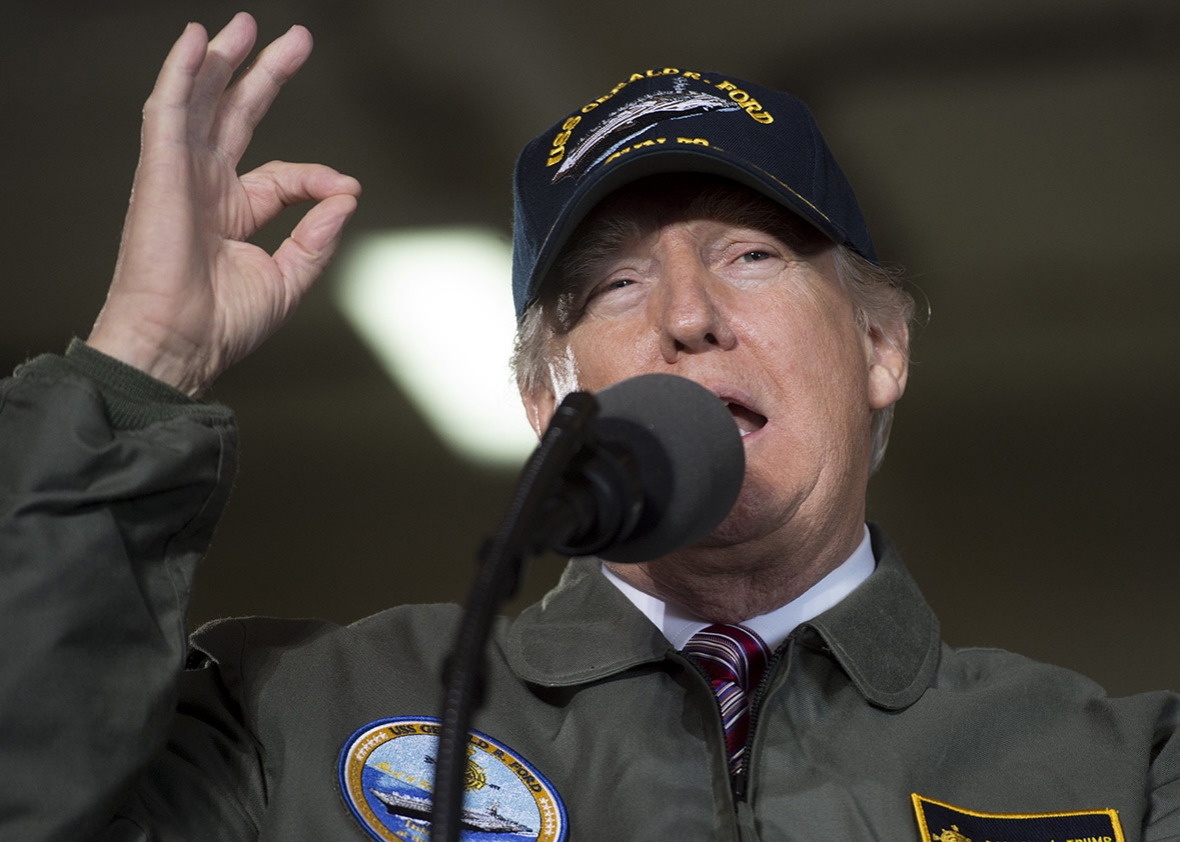
Saul Loeb/AFP/Getty Images
This post is adapted from a recent segment of Mike Pesca’s podcast, The Gist. To listen to the audio version of this segment, click the player beneath this paragraph.
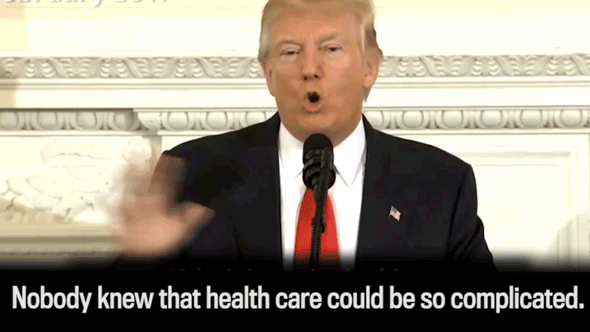
Reuters
Nobody knew health care could be so complicated? Nobody? See, I thought everybody knew that. I’ve even seen a supercut put together by Politico of President Obama saying that, over and over again. “Health care is complicated.” “Our health care system is so complex.”
But there’s something more going on here than the simplest explanation, which is that Trump does not know what he’s talking about. In fact, you just have to decode what Trump is saying. When Donald Trump says “nobody,” what he really means is “almost everybody.”
Example: When Chris Wallace asked Trump how he felt about climate change, Trump responded, “Nobody really knows.” Meaning, almost every informed citizen knows climate change is real.
Likewise, Trump will often say there’s “nobody” better, which in Donald Trump’s mouth means “actually, millions of people are better.” So many, many better people.
Here’s another example:
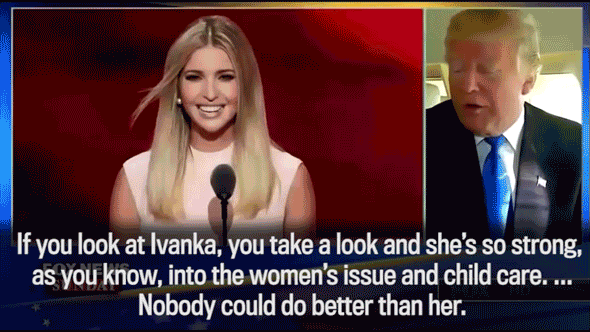
Fox News
Almost everybody could do it better than her!
If “nobody” means “pretty close to everybody,” what does “everybody” mean?
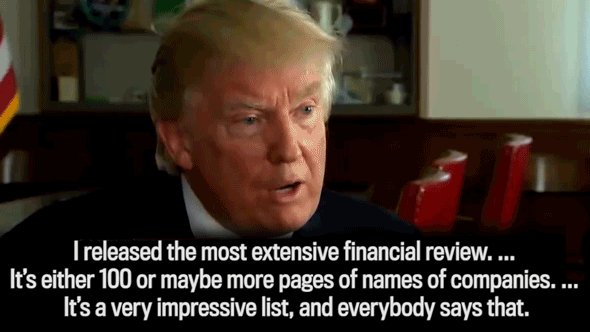
ABC News
It means “almost nobody says that.” Pretty much nobody says Donald Trump’s financial review is very impressive!
So “everybody” means “almost nobody,” and “nobody” means “almost everybody.” To wit, here are a couple of things Donald Trump says he could do better than “anybody,” or what he knows more than “anybody”:
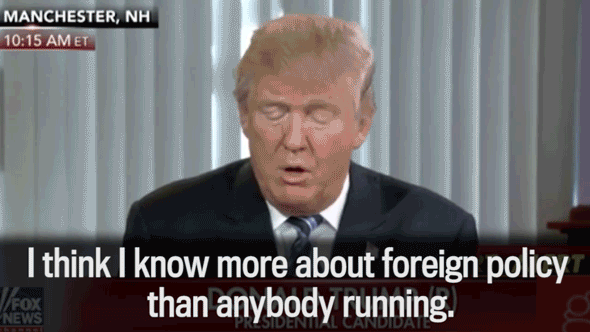
Fox News
And who could forget this:
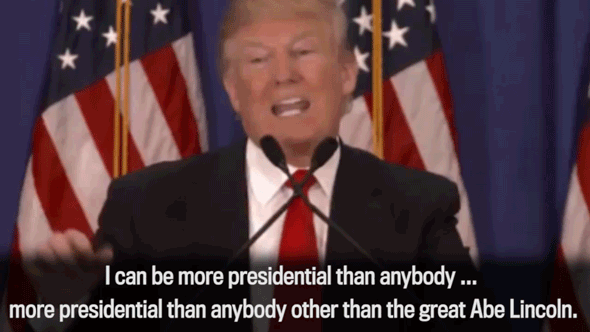
Associated Press
I think “everybody” agrees with him on that.
If “everybody” means closer to “nobody” and vice-versa, what about “somebody”? When does Donald Trump refer to the “somebodies,” the “some people”? Here’s when: when he needs to introduce a theory or crazily inaccurate statement that even he doesn’t want to own. “Some people,” “a lot of people,” “many are saying”:
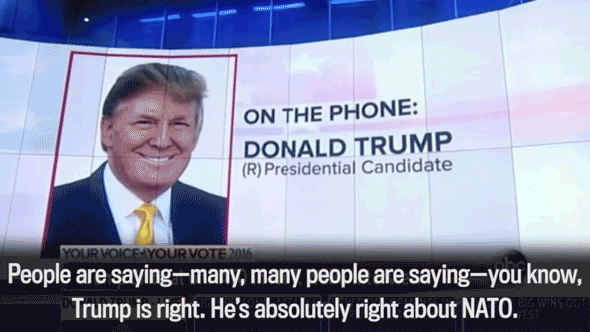
Some people tell me. A lot of people are saying.
Here’s another example of what “some” folks are saying—this time, it was about President Obama not “getting” the fact that the Orlando nightclub attack should be labeled “Muslim” terrorism:
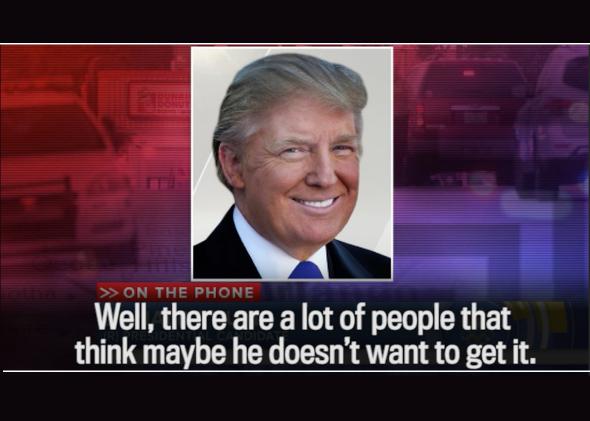
NBC
It’s not that Donald Trump can’t even speak the truth. It’s that we don’t speak Trump, and he expects us to. Can’t anybody speak Trump? And what does “anybody” mean in Trump, anyway?
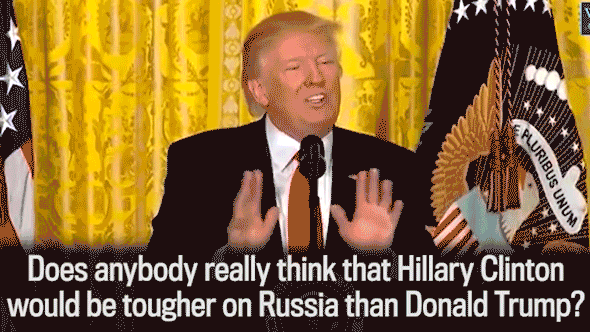
WH.gov
No, not “anybody”—everybody!
Anybody can figure out what a certain somebody in the Oval Office means when he says “everybody” and “nobody.” Now, “some people” are saying this is not excusable—that there’s another word for it: rampant, wanton, uncontrolled lying. But “everybody” knows a president wouldn’t do that, right?
Anybody?